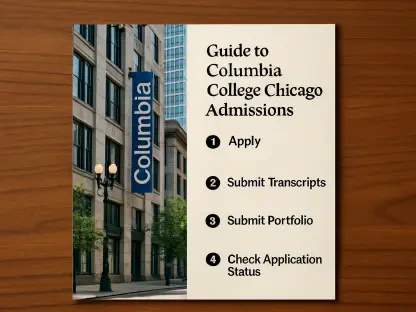In the landscape of higher education, few institutions stand out as consistently as Johns Hopkins University, which has secured the impressive No. 7 position in the latest U.S. News & World Report Best Colleges rankings for undergraduates. Tied with esteemed peers like Duke, Northwestern, and the University of Pennsylvania, this Baltimore-based university has cemented its reputation as a powerhouse of academic excellence and innovation. Its placement among the top 10 since 2019, and within the top 20 for nearly four decades, speaks volumes about its enduring commitment to quality education. This recognition is not merely a number but a reflection of a multifaceted approach to student success, encompassing financial accessibility, groundbreaking research, and specialized academic programs. Delving into the factors behind this ranking reveals a university that balances tradition with forward-thinking strategies, making it a beacon for aspiring scholars nationwide.
Academic Excellence and Program Strengths
Leadership in Specialized Disciplines
Johns Hopkins University has carved out a formidable reputation in several cutting-edge academic fields, which significantly bolsters its high ranking. Notably, it holds a tie for the No. 1 spot in biomedical engineering and ranks No. 4 in areas like biocomputing, bioinformatics, and biotechnology. These standings highlight the university’s focus on disciplines that are shaping the future of science and technology. Additional rankings, such as No. 8 in psychology, No. 13 in engineering, and No. 16 in computer science, demonstrate a breadth of excellence that appeals to a diverse student body. This strength in specialized programs ensures that graduates are well-prepared for high-demand careers, contributing to the institution’s stellar reputation among academic peers and employers alike. The emphasis on niche yet impactful areas of study sets a standard that few can match, reinforcing the university’s position as a leader in higher education.
Commitment to Undergraduate Teaching
Beyond specific disciplines, Johns Hopkins excels in delivering exceptional undergraduate teaching, a critical metric in national rankings. Faculty dedication to student learning is evident, as the university earns high marks for classroom experiences, based on evaluations from academic peers. This focus on quality instruction creates an environment where students are not just taught but mentored, fostering critical thinking and intellectual growth. Over 90% of undergraduates engage in meaningful interactions with faculty through research or creative projects, often dedicating significant weekly hours to these pursuits. Such hands-on learning opportunities ensure that theoretical knowledge is complemented by practical application, preparing students for real-world challenges. This commitment to personalized education, where faculty prioritize student development, distinguishes Johns Hopkins as a place where academic rigor meets supportive guidance, enhancing its appeal to prospective students seeking a transformative college experience.
Student Success and Societal Impact
Financial Accessibility and Value
A cornerstone of Johns Hopkins’ high ranking lies in its dedication to financial accessibility, ensuring that education remains within reach for students from varied economic backgrounds. Ranking No. 6 for low student debt for two consecutive years, the university has made significant strides, thanks in large part to a historic $1.8 billion donation from alumnus Michael R. Bloomberg in 2018. This transformative gift has halved the average federal loan debt for graduates, positioning Johns Hopkins as No. 12 for value when considering academic quality against net cost of attendance. This focus on affordability means that students can pursue their education without the burden of overwhelming financial strain, a factor that resonates deeply in today’s economic climate. By prioritizing aid and reducing debt, the university not only enhances individual student outcomes but also sets a benchmark for how institutions can address the growing concern of college affordability on a national scale.
Advancing Social Mobility and Innovation
Equally impressive is Johns Hopkins’ commitment to social mobility, reflected in a remarkable 17-spot climb in related rankings. This achievement underscores the university’s success in enrolling and graduating a substantial number of Pell Grant recipients, often from lower-income families. Such efforts align with broader trends in higher education to promote equity and access, ensuring that talent, rather than financial status, determines opportunity. Simultaneously, the university ranks No. 10 for innovation and No. 9 for undergraduate research and creative projects, up three spots from last year. These metrics highlight an environment where students are encouraged to push boundaries and engage in experiential learning. The combination of fostering social mobility and driving innovation illustrates how Johns Hopkins not only serves its students but also contributes to societal progress, creating pathways for diverse individuals to thrive while addressing pressing global challenges through research and creativity.
Reflecting on a Legacy of Excellence
Looking back, Johns Hopkins University’s ascent to the No. 7 spot in national rankings marks a culmination of sustained efforts to prioritize student success across multiple dimensions. Its initiatives to minimize student debt through robust financial aid reflect a deep understanding of the economic barriers many face. The university’s leadership in specialized fields like biomedical engineering stands as a testament to its role in shaping future industries. Moreover, the emphasis on research and innovative teaching methods showcases a dedication to preparing students for a rapidly evolving world. As the institution moves forward, the focus remains on expanding access, enhancing academic programs, and fostering an environment where every student can achieve their potential. These efforts suggest a blueprint for other universities aiming to balance excellence with equity, pointing toward a future where higher education can continue to evolve as a force for individual and collective advancement.









